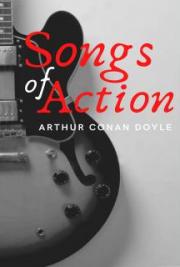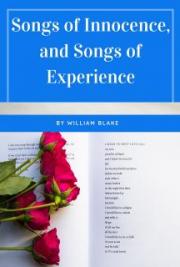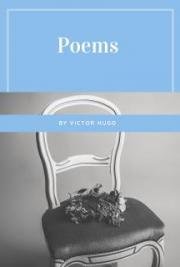In the ancient town of Bruges, In the quaint old Flemish city,
As the evening shades descended, Low and loud and sweetly blended, Low at times and loud at times, And changing like a poet's rhymes, Rang the beautiful wild chimes From the Belfry in the market
Of the ancient town of Bruges.
Then, with deep sonorous clangor Calmly answering their sweet anger, When the wrangling bells had ended, Slowly struck the clock eleven, And, from out the silent heaven, Silence on the town descended. Silence, silence everywhere,
On the earth and in the air,
Save that footsteps here and there Of some burgher home returning, By the street lamps faintly burning, For a moment woke the echoes Of the ancient town of Bruges.
But amid my broken slumbers Still I heard those magic numbers, As they loud proclaimed the flight And stolen marches of the night; Till their chimes in sweet collision Mingled with each wandering vision, Mingled with the fortune-telling Gypsy-bands of dreams and fancies, Which amid the waste expanses Of the silent land of trances
Have their solitary dwelling;
All else seemed asleep in Bruges, In the quaint old Flemish city.
And I thought how like these chimes Are the poet's airy rhymes,
All his rhymes and roundelays, His conceits, and songs, and ditties, From the belfry of his brain,
Scattered downward, though in vain, On the roofs and stones of cities! For by night the drowsy ear
Under its curtains cannot hear, And by day men go their ways, Hearing the music as they pass, But deeming it no more, alas! Than the hollow sound of brass.
Yet perchance a sleepless wight,
Lodging at some humble inn
In the narrow lanes of life,
When the dusk and hush of night
Shut out the incessant din
Of daylight and its toil and strife,
May listen with a calm delight
To the poet's melodies,
Till he hears, or dreams he hears,
Intermingled with the song,
Thoughts that he has cherished long; Hears amid the chime and singing The bells of his own village ringing, And wakes, and finds his slumberous eyes Wet with most delicious tears.
Thus dreamed I, as by night I lay In Bruges, at the Fleur-de-Ble, Listening with a wild delight
To the chimes that, through the night Bang their changes from the Belfry Of that quaint old Flemish city.
THE BELFRY OF BRUGES
In the market-place of Bruges stands the belfry old and brown; Thrice consumed and thrice rebuilded, still it watches o'er the town.
As the summer morn was breaking, on that lofty tower I stood, And the world threw off the darkness, like the weeds of widowhood. Thick with towns and hamlets studded, and with streams and vapors gray, Like a shield embossed with silver, round and vast the landscape lay.
At my feet the city slumbered. From its chimneys, here and there, Wreaths of snow-white smoke, ascending, vanished, ghost-like, into air.
Not a sound rose from the city at that early morning hour, But I heard a heart of iron beating in the ancient tower.
From their nests beneath the rafters sang the swallows wild and high; And the world, beneath me sleeping, seemed more distant than the sky.
Then most musical and solemn, bringing back the olden times, With their strange, unearthly changes rang the melancholy chimes,
Like the psalms from some old cloister, when the nuns sing in the choir; And the great bell tolled among them, like the chanting of a friar.
Visions of the days departed, shadowy phantoms filled my brain; They who live in history only seemed to walk the earth again;
All the Foresters of Flanders,--mighty Baldwin Bras de Fer, Lyderick du Bucq and Cressy Philip, Guy de Dampierre.
I beheld the pageants splendid that adorned those days of old; Stately dames, like queens attended, knights who bore the Fleece of Gold
Lombard and Venetian merchants with deep-laden argosies; Ministers from twenty nations; more than royal pomp and ease.
I beheld proud Maximilian, kneeling humbly on the ground; I beheld the gentle Mary, hunting with her hawk and hound;
And her lighted bridal-chamber, where a duke slept with the queen, And the armed guard around them, and the sword unsheathed between.
I beheld the Flemish weavers, with Namur and Juliers bold, Marching homeward from the bloody battle of the Spurs of Gold;
Saw the light at Minnewater, saw the White Hoods moving west, Saw great Artevelde victorious scale the Golden Dragon's nest.
And again the whiskered Spaniard all the land with terror smote; And again the wild alarum sounded from the tocsin's throat;
Till the bell of Ghent responded o'er lagoon and dike of sand, "I am Roland! I am Roland! there is victory in the land!" Then the sound of drums aroused me. The awakened city's roar Chased the phantoms I had summoned back into their graves once more.
Hours had passed away like minutes; and, before I was aware, Lo! the shadow of the belfry crossed the sun-illumined square.
A GLEAM OF SUNSHINE
This is the place. Stand still, my steed, Let me review the scene,
And summon from the shadowy Past The forms that once have been.
The Past and Present here unite Beneath Time's flowing tide,
Like footprints hidden by a brook, But seen on either side.
Here runs the highway to the town;
There the green lane descends,
Through which I walked to church with thee, O gentlest of my friends!
The shadow of the linden-trees
Lay moving on the grass;
Between them and the moving boughs, A shadow, thou didst pass.
Thy dress was like the lilies,
And thy heart as pure as they: One of God's holy messengers
Did walk with me that day.
I saw the branches of the trees Bend down thy touch to meet,
The clover-blossoms in the grass Rise up to kiss thy feet,
"Sleep, sleep to-day, tormenting cares, Of earth and folly born!"
Solemnly sang the village choir On that sweet Sabbath morn.
Through the closed blinds the golden sun Poured in a dusty beam,
Like the celestial ladder seen By Jacob in his dream.
And ever and anon, the wind,
Sweet-scented with the hay,
Turned o'er the hymn-book's fluttering leaves
That on the window lay.
Long was the good man's sermon, Yet it seemed not so to me;
For he spake of Ruth the beautiful, And still I thought of thee.
Long was the prayer he uttered, Yet it seemed not so to me;
For in my heart I prayed with him, And still I thought of thee.
But now, alas! the place seems changed; Thou art no longer here:
Part of the sunshine of the scene With thee did disappear.
Though thoughts, deep-rooted in my heart, Like pine-trees dark and high,
Subdue the light of noon, and breathe A low and ceaseless sigh;
This memory brightens o'er the past, As when the sun, concealed
Behind some cloud that near us hangs Shines on a distant field.
THE ARSENAL AT SPRINGFIELD
This is the Arsenal. From floor to ceiling, Like a huge organ, rise the burnished arms;
But front their silent pipes no anthem pealing Startles the villages with strange alarms.
Ah! what a sound will rise, how wild and dreary, When the death-angel touches those swift keys
What loud lament and dismal Miserere Will mingle with their awful symphonies
I hear even now the infinite fierce chorus, The cries of agony, the endless groan,
Which, through the ages that have gone before us, In long reverberations reach our own.
On helm and harness rings the Saxon hammer, Through Cimbric forest roars the Norseman's song,
And loud, amid the universal clamor,
O'er distant deserts sounds the Tartar gong.
I hear the Florentine, who from his palace Wheels out his battle-bell with dreadful din,
And Aztec priests upon their teocallis
Beat the wild war-drums made of serpent's skin;
The tumult of each sacked and burning village; The shout that every prayer for mercy drowns;
The soldiers' revels in the midst of pillage; The wail of famine in beleaguered towns;
The bursting shell, the gateway wrenched asunder, The rattling musketry, the clashing blade;
And ever and anon, in tones of thunder,
The diapason of the cannonade.
Is it, O man, with such discordant noises, With such accursed instruments as these,
Thou drownest Nature's sweet and kindly voices, And jarrest the celestial harmonies?
Were half the power, that fills the world with terror, Were half the wealth, bestowed on camps and courts,
Given to redeem the human mind from error, There were no need of arsenals or forts:
The warrior's name would be a name abhorred! And every nation, that should lift again
Its hand against a brother, on its forehead Would wear forevermore the curse of Cain!
Down the dark future, through long generations, The echoing sounds grow fainter and then cease;
And like a bell, with solemn, sweet vibrations, I hear once more the voice of Christ say, "Peace!"
Peace! and no longer from its brazen portals The blast of War's great organ shakes the skies! But beautiful as songs of the immortals, The holy melodies of love arise.
NUREMBERG
In the valley of the Pegnitz, where across broad meadow-lands Rise the blue Franconian mountains, Nuremberg, the ancient, stands.
Quaint old town of toil and traffic, quaint old town of art and song, Memories haunt thy pointed gables, like the rooks that round them throng:
Memories of the Middle Ages, when the emperors, rough and bold, Had their dwelling in thy castle, time-defying, centuries old;
And thy brave and thrifty burghers boasted, in their uncouth rhyme, That their great imperial city stretched its hand through every clime.
In the court-yard of the castle, bound with many an iron hand, Stands the mighty linden planted by Queen Cunigunde's hand;
On the square the oriel window, where in old heroic days Sat the poet Melchior singing Kaiser Maximilian's praise.
Everywhere I see around me rise the wondrous world of Art: Fountains wrought with richest sculpture standing in the common mart;
And above cathedral doorways saints and bishops carved in stone, By a former age commissioned as apostles to our own.
In the church of sainted Sebald sleeps enshrined his holy dust, And in bronze the Twelve Apostles guard from age to age their trust;
In the church of sainted Lawrence stands a pix of sculpture rare, Like the foamy sheaf of fountains, rising through the painted air.
Here, when Art was still religion, with a simple, reverent heart, Lived and labored Albrecht Durer, the Evangelist of Art;
Hence in silence and in sorrow, toiling still with busy hand, Like an emigrant he wandered, seeking for the Better Land.
Emigravit is the inscription on the tombstone where he lies; Dead he is not, but departed,--for the artist never dies.
Fairer seems the ancient city, and the sunshine seems more fair, That he once has trod its pavement, that he once has breathed its air! Through these streets so broad and stately, these obscure and dismal lanes, Walked of yore the Mastersingers, chanting rude poetic strains.
From remote and sunless suburbs came they to the friendly guild, Building nests in Fame's great temple, as in spouts the swallows build.
As the weaver plied the shuttle, wove he too the mystic rhyme, And the smith his iron measures hammered to the anvil's chime;
Thanking God, whose boundless wisdom makes the flowers of poesy bloom In the forge's dust and cinders, in the tissues of the loom.
Here Hans Sachs, the cobbler-poet, laureate of the gentle craft, Wisest of the Twelve Wise Masters, in huge folios sang and laughed.
But his house is now an ale-house, with a nicely sanded floor, And a garland in the window, and his face above the door;
Painted by some humble artist, as in Adam Puschman's song, As the old man gray and dove-like, with his great beard white and long.
And at night the swart mechanic comes to drown his cark and care, Quaffing ale from pewter tankard; in the master's antique chair.
Vanished is the ancient splendor, and before my dreamy eye Wave these mingled shapes and figures, like a faded tapestry.
Not thy Councils, not thy Kaisers, win for thee the world's regard; But thy painter, Albrecht Durer, and Hans Sachs thy cobbler-bard.
Thus, O Nuremberg, a wanderer from a region far away,
As he paced thy streets and court-yards, sang in thought his careless lay:
Gathering from the pavement's crevice, as a floweret of the soil, The nobility of labor,--the long pedigree of toil.
THE NORMAN BARON
Dans les moments de la vie ou la reflexion devient plus calme
et plus profonde, ou l'interet et l'avarice parlent moins haut
que la raison, dans les instants de chagrin domestique, de
maladie, et de peril de mort, les nobles se repentirent de
posseder des serfs, comme d'une chose peu agreable a Dieu, qui
avait cree tous les hommes a son image.--THIERRY, Conquete de
l'Angleterre.
In his chamber, weak and dying,
Was the Norman baron lying;
Loud, without, the tempest thundered And the castle-turret shook,
In this fight was Death the gainer, Spite of vassal and retainer,
And the lands his sires had plundered,
Written in the Doomsday Book.
By his bed a monk was seated, Who in humble voice repeated Many a prayer and pater-noster,
From the missal on his knee;
And, amid the tempest pealing, Sounds of bells came faintly stealing, Bells, that from the neighboring kloster
Rang for the Nativity.
In the hall, the serf and vassal
Held, that night their Christmas wassail; Many a carol, old and saintly,
Sang the minstrels and the waits;
And so loud these Saxon gleemen Sang to slaves the songs of freemen, That the storm was heard but faintly,
Knocking at the castle-gates.
Till at length the lays they chanted Reached the chamber terror-haunted, Where the monk, with accents holy,
Whispered at the baron's ear.
Tears upon his eyelids glistened, As he paused awhile and listened, And the dying baron slowly
Turned his weary head to hear.
"Wassail for the kingly stranger Born and cradled in a manger! King, like David, priest, like Aaron,
Christ is born to set us free!"
And the lightning showed the sainted Figures on the casement painted, And exclaimed the shuddering baron,
"Miserere, Domine!"
In that hour of deep contrition
He beheld, with clearer vision,
Through all outward show and fashion,
Justice, the Avenger, rise.
All the pomp of earth had vanished, Falsehood and deceit were banished, Reason spake more loud than passion,
And the truth wore no disguise.
Every vassal of his banner,
Every serf born to his manor,
All those wronged and wretched creatures,
By his hand were freed again.
And, as on the sacred missal He recorded their dismissal, Death relaxed his iron features,
And the monk replied, "Amen!"
Many centuries have been numbered Since in death the baron slumbered By the convent's sculptured portal,
Mingling with the common dust:
But the good deed, through the ages Living in historic pages,
Brighter grows and gleams immortal,
Unconsumed by moth or rust
RAIN IN SUMMER
How beautiful is the rain! After the dust and heat, In the broad and fiery street, In the narrow lane,
How beautiful is the rain!
How it clatters along the roofs,
Like the tramp of hoofs
How it gushes and struggles out From the throat of the overflowing spout!
Across the window-pane It pours and pours;
And swift and wide,
With a muddy tide,
Like a river down the gutter roars The rain, the welcome rain!
The sick man from his chamber looks At the twisted brooks;
He can feel the cool
Breath of each little pool;
His fevered brain
Grows calm again,
And he breathes a blessing on the rain.
From the neighboring school Come the boys,
With more than their wonted noise And commotion;
And down the wet streets
Sail their mimic fleets,
Till the treacherous pool
Ingulfs them in its whirling
And turbulent ocean.
In the country, on every side,
Where far and wide,
Like a leopard's tawny and spotted hide, Stretches the plain,
To the dry grass and the drier grain How welcome is the rain!
In the furrowed land
The toilsome and patient oxen stand; Lifting the yoke encumbered head, With their dilated nostrils spread, They silently inhale
The clover-scented gale,
And the vapors that arise
From the well-watered and smoking soil. For this rest in the furrow after toil Their large and lustrous eyes
Seem to thank the Lord,
More than man's spoken word.
Near at hand,
From under the sheltering trees, The farmer sees
His pastures, and his fields of grain, As they bend their tops
To the numberless beating drops Of the incessant rain.
He counts it as no sin
That he sees therein
Only his own thrift and gain.
These, and far more than these,
The Poet sees!
He can behold
Aquarius old
Walking the fenceless fields of air; And from each ample fold
Of the clouds about him rolled
Scattering everywhere
The showery rain,
As the farmer scatters his grain.
He can behold
Things manifold
That have not yet been wholly told,-- Have not been wholly sung nor said. For his thought, that never stops,
Follows the water-drops
Down to the graves of the dead,
Down through chasms and gulfs profound, To the dreary fountain-head
Of lakes and rivers under ground;
And sees them, when the rain is done, On the bridge of colors seven
Climbing up once more to heaven, Opposite the setting sun.
Thus the Seer,
With vision clear,
Sees forms appear and disappear,
In the perpetual round of strange,
Mysterious change
From birth to death, from death to birth, From earth to heaven, from heaven to earth; Till glimpses more sublime
Of things, unseen before,
Unto his wondering eyes reveal
The Universe, as an immeasurable wheel Turning forevermore
In the rapid and rushing river of Time.
TO A CHILD
Dear child! how radiant on thy mother's knee, With merry-making eyes and jocund smiles, Thou gazest at the painted tiles,
Whose figures grace,
With many a grotesque form and face. The ancient chimney of thy nursery!
The lady with the gay macaw,
The dancing girl, the grave bashaw
With bearded lip and chin;
And, leaning idly o'er his gate,
Beneath the imperial fan of state,
The Chinese mandarin.
With what a look of proud command
Thou shakest in thy little hand
The coral rattle with its silver bells,
Making a merry tune!
Thousands of years in Indian seas
That coral grew, by slow degrees,
Until some deadly and wild monsoon Dashed it on Coromandel's sand!
Those silver bells
Reposed of yore,
As shapeless ore,
Far down in the deep-sunken wells
Of darksome mines,
In some obscure and sunless place,
Beneath huge Chimborazo's base,
Or Potosi's o'erhanging pines
And thus for thee, O little child,
Through many a danger and escape, The tall ships passed the stormy cape; For thee in foreign lands remote,
Beneath a burning, tropic clime,
The Indian peasant, chasing the wild goat, Himself as swift and wild,
In falling, clutched the frail arbute,
The fibres of whose shallow root,
Uplifted from the soil, betrayed
The silver veins beneath it laid,
The buried treasures of the miser, Time.
But, lo! thy door is left ajar!
Thou hearest footsteps from afar!
And, at the sound,
Thou turnest round
With quick and questioning eyes,
Like one, who, in a foreign land,
Beholds on every hand
Some source of wonder and surprise! And, restlessly, impatiently,
Thou strivest, strugglest, to be free, The four walls of thy nursery
Are now like prison walls to thee.
No more thy mother's smiles,
No more the painted tiles,
Delight thee, nor the playthings on the floor, That won thy little, beating heart before; Thou strugglest for the open door.
Through these once solitary halls
Thy pattering footstep falls.
The sound of thy merry voice
Makes the old walls
Jubilant, and they rejoice
With the joy of thy young heart,
O'er the light of whose gladness
No shadows of sadness
From the sombre background of memory start.
Once, ah, once, within these walls, One whom memory oft recalls,
The Father of his Country, dwelt. And yonder meadows broad and damp The fires of the besieging camp Encircled with a burning belt.
Up and down these echoing stairs, Heavy with the weight of cares, Sounded his majestic tread;
Yes, within this very room
Sat he in those hours of gloom, Weary both in heart and head.
But what are these grave thoughts to thee? Out, out! into the open air!
Thy only dream is liberty,
Thou carest little how or where.
I see thee eager at thy play,
Now shouting to the apples on the tree, With cheeks as round and red as they; And now among the yellow stalks,
Among the flowering shrubs and plants, As restless as the bee.
Along the garden walks,
The tracks of thy small carriage-wheels I trace; And see at every turn how they efface Whole villages of sand-roofed tents,
That rise like golden domes
Above the cavernous and secret homes Of wandering and nomadic tribes of ants. Ah, cruel little Tamerlane,
Who, with thy dreadful reign,
Dost persecute and overwhelm
These hapless Troglodytes of thy realm! What! tired already! with those suppliant looks, And voice more beautiful than a poet's books, Or murmuring sound of water as it flows. Thou comest back to parley with repose; This rustic seat in the old apple-tree,
With its o'erhanging golden canopy
Of leaves illuminate with autumnal hues, And shining with the argent light of dews, Shall for a season be our place of rest. Beneath us, like an oriole's pendent nest, From which the laughing birds have taken wing, By thee abandoned, hangs thy vacant swing. Dream-like the waters of the river gleam; A sailless vessel drops adown the stream, And like it, to a sea as wide and deep, Thou driftest gently down the tides of sleep.
O child! O new-born denizen Of life's great city! on thy head The glory of the morn is shed, Like a celestial benison!
Here at the portal thou dost stand, And with thy little hand
Thou openest the mysterious gate Into the future's undiscovered land. I see its valves expand,
As at the touch of Fate!
Into those realms of love and hate, Into that darkness blank and drear, By some prophetic feeling taught,
I launch the bold, adventurous thought, Freighted with hope and fear;
As upon subterranean streams,
In caverns unexplored and dark,
Men sometimes launch a fragile bark, Laden with flickering fire,
And watch its swift-receding beams, Until at length they disappear,
And in the distant dark expire.
By what astrology of fear or hope
Dare I to cast thy horoscope!
Like the new moon thy life appears; A little strip of silver light,
And widening outward into night
The shadowy disk of future years;
And yet upon its outer rim,
A luminous circle, faint and dim,
And scarcely visible to us here,
Rounds and completes the perfect sphere; A prophecy and intimation,
A pale and feeble adumbration,
Of the great world of light, that lies Behind all human destinies.
Ah! if thy fate, with anguish fraught, Should be to wet the dusty soil With the hot tears and sweat of toil,-To struggle with imperious thought, Until the overburdened brain,
Weary with labor, faint with pain, Like a jarred pendulum, retain
Only its motion, not its power,-- Remember, in that perilous hour, When most afflicted and oppressed, From labor there shall come forth rest. And if a more auspicious fate







